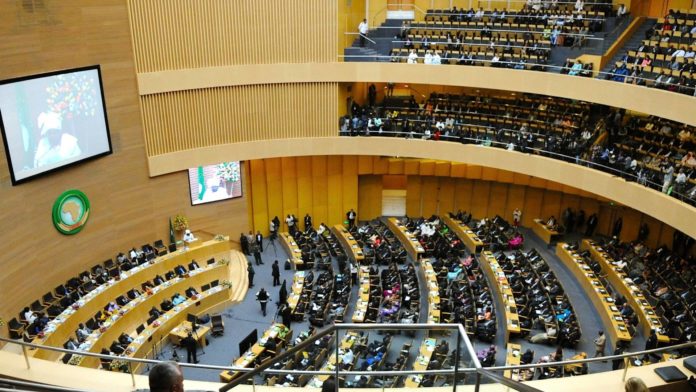The African Union’s ability to respond effectively to political crises has been hampered by institutional challenges, dating back to well before it was established to replace the Organization of African Unity (OAU) in 2002. Intended to address some of the OAU’s inadequacies, the reforms that laid the foundation of the AU were rooted in the findings of a special OAU panel that investigated the circumstances leading to the 1994 genocide in Rwanda, the reasons the international community failed to act sooner, and the institutional gaps that eventually prevented a coherent response from the OAU and the United Nations.
In response to the panel’s findings, the new AU undertook three major reforms. First, it would prioritize “non-indifference” over the OAU’s principle of “non-intervention.” The new organization would embrace the Responsibility to Protect (R2P) doctrine, which asserts that sovereignty is not a privilege but a responsibility and that states cannot invoke it to shield themselves from scrutiny for harming their citizens. Second, it established several new institutions that were meant to be more effective than their predecessors. These included the AU Commission (AUC), which runs day-to-day operations and is mostly staffed by professionals, unlike the OAU’s General Secretariat, which had been dominated by political appointees. The Pan-African Parliament and the Economic, Social, and Cultural Council (ECOSOCC) were also established. Both institutions play a role in the AU’s conflict prevention and management initiatives.
Third, new protocols were set up to enforce ethical standards. Adopted in January 2007, the African Charter on Democracy, Elections, and Governance, for instance, outlines punitive measures against incumbents that refuse to leave power after losing elections, or those that seek to revise constitutions and laws to remain in office at all costs. The Charter entered into force as a legal instrument in 2012 after 15 countries ratified it. It has now been ratified by 32 countries and signed by 46.
Nearly two decades after the AU’s founding, however, many of these reforms have yet to be meaningfully implemented. As a result, the AU is still hobbled by the same institutional weaknesses that stymied the OAU. In a growing number of cases, members have also openly undermined and defied AU resolutions. The AU’s impotence in dealing with situations in DRC, Burundi, and South Sudan, among other crises, shows that the institutional reforms intended to correct the problems of the past have yet to take root.
CENTER FOR AFRICAN STUDIES
Center for Africa Studies (AFRAM) which located in Ankara, is an organization facilitating under the administration of African Affairs Council (AFAC). It makes various researches about Africa to enhance economic and cultural bounds between Africa and Turkey. AFRAM’s publishings has been shared with different institutions as they require to obtain.
AFRICA OBSERVATORY
Africa Observatory is one the publishing of AFRAM and it has been published each two weeks. It has been delivered to different institutions via e-mail.






